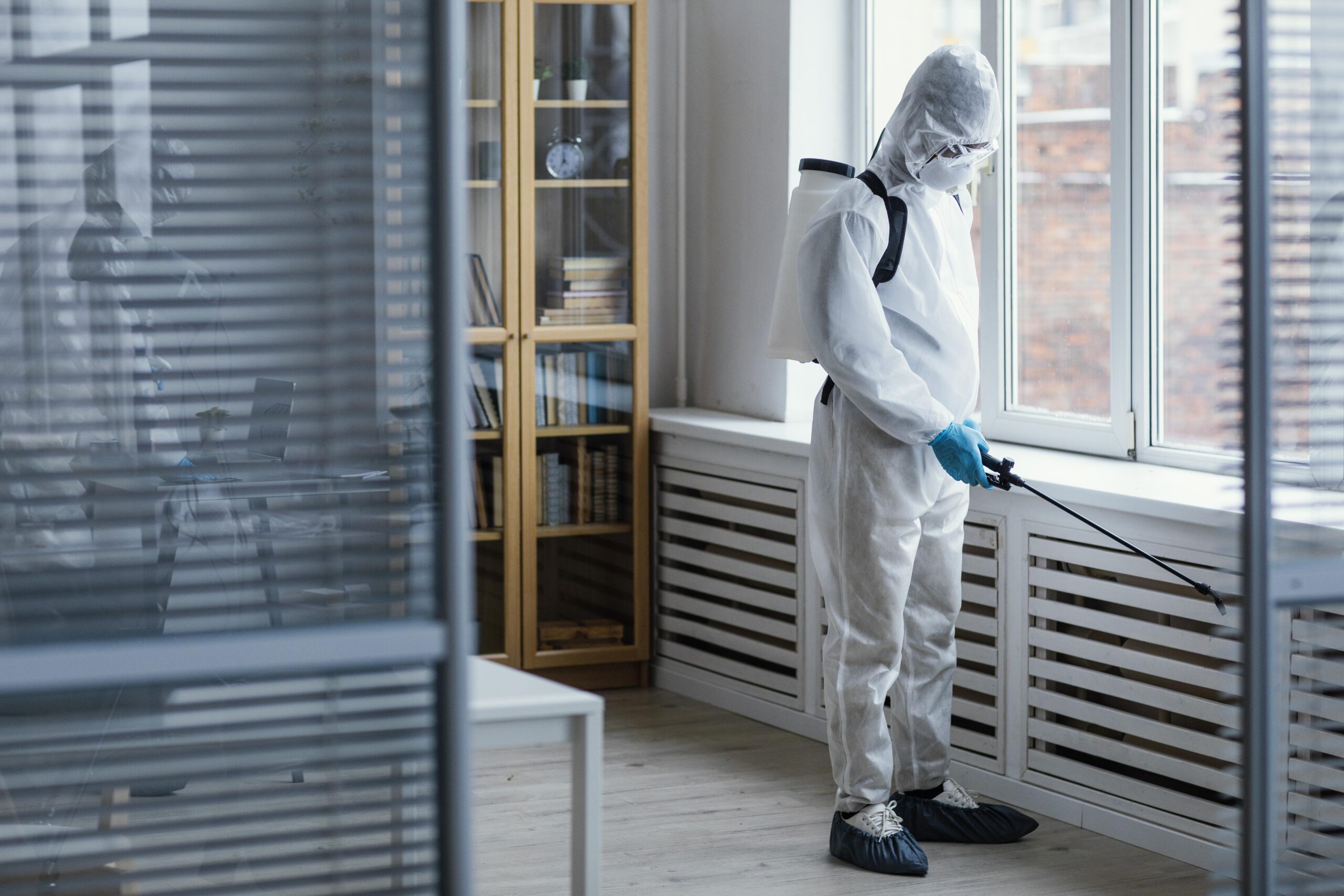In business, a pest-free environment is not just a preference; it’s a necessity. Our comprehensive commercial pest control solutions are meticulously crafted to address businesses’ unique challenges. We recognize that each industry has distinct requirements, and our dedicated team specializes in tailoring pest management strategies accordingly. From restaurants grappling with food safety concerns to warehouses safeguarding inventory, we understand the critical need for effective pest control in commercial spaces. We proactively approach commercial pest control, implementing cutting-edge technologies and environmentally conscious practices. Our services extend across various sectors, including offices, retail spaces, and more.
We prioritize the well-being of our employees, customers, and the environment by employing eco-friendly measures. Our proven track record underscores our commitment to delivering customized solutions that exceed conventional standards. Safeguard your business’s reputation and create a hygienic, pest-free space. Our tailored pest control solutions are designed to meet industry-specific demands and ensure the seamless continuity of your business operations. Choose us for unparalleled expertise, proactive strategies, and a dedication to keeping your commercial space pest-free.
Why is customized pest control important for businesses?
Customized pest control for businesses is paramount for several reasons, emphasizing the necessity of tailored solutions in pest services. Unlike residential spaces, commercial establishments vary significantly in structure, size, and purpose, creating unique environments that demand specialized attention. More than a one-size-fits-all approach is required when addressing the diverse pest challenges businesses across different industries face. The importance of customized pest control lies in its ability to target the specific pests that threaten a particular business precisely. Whether it’s a restaurant contending with food safety concerns or a warehouse safeguarding valuable inventory, a tailored pest service ensures that the solutions implemented are effective and aligned with the industry’s specific regulations and requirements.
Moreover, customized pest control strategies contribute to minimizing disruptions to business operations. By understanding the distinct needs of commercial space, pest services can be strategically planned to accommodate working hours and minimize downtime. This proactive approach addresses current pest issues and establishes preventative measures, providing long-term protection against potential infestations. In essence, customized pest control is the linchpin in maintaining a pest-free environment for businesses, safeguarding their reputation and the health and safety of employees, customers, and the overall business infrastructure.
What factors should businesses consider when customizing pest control solutions?
When customizing pest control solutions for businesses, several critical factors should be carefully considered, highlighting the importance of a professional pest control approach. Firstly, business and industry-specific regulations play a pivotal role. A professional pest control service, well-versed in diverse industries, understands each sector’s nuances and compliance requirements, ensuring that the solutions align with specific standards. The physical layout of the commercial space is equally crucial. Different businesses have varying structures, and a professional pest control provider tailors their strategies to address the specific challenges posed by the layout, whether it’s an expansive warehouse or a compact office. Additionally, the surrounding environment and geographical location influence the types of pests businesses may encounter, necessitating a customized approach based on local pest profiles and seasonal variations.
Furthermore, the potential impact on daily operations is a crucial consideration. A professional pest control service works collaboratively with businesses to create a plan that minimizes disruptions, ensuring pest management activities are seamlessly integrated into the routine. In essence, businesses should prioritize a professional pest control service that considers the type of industry, structural characteristics, local pest dynamics, and operational needs. A tailored approach ensures the effective elimination of current pest issues and the implementation of preventative measures for long-term protection.
What cost-effective pest control strategies are available for businesses?
Cost-effective cockroach control strategies are crucial for businesses seeking efficient pest management without compromising budgets. Implementing proper sanitation practices is a fundamental and economical approach. Regular cleaning, proper waste disposal, and elimination of food residues minimize attractants and discourage cockroach infestations. Sealing entry points, such as cracks and crevices, is a low-cost yet effective strategy, preventing cockroaches from infiltrating the premises. Strategic placement of cockroach baits is another cost-effective method. These baits, containing insecticides, attract and eliminate cockroaches while requiring minimal investment. Additionally, employing sticky traps in critical areas provides a non-toxic monitoring solution, helping identify the extent of the infestation.
Routine inspections by professional pest control services are essential for early detection and intervention. While this involves a specific cost, proactive management helps prevent severe infestations, ultimately saving businesses from more extensive and expensive treatments. Integrated pest management (IPM) programs, combining various strategies, offer a comprehensive and cost-effective long-term solution. In conclusion, combining sanitation practices, entry point sealing, targeted baiting, strategic trapping, and proactive professional inspections forms a cost-effective cockroach control strategy for businesses. These measures address existing infestations and establish preventative measures to ensure long-term pest management within budget constraints.
How can businesses monitor the effectiveness of their pest control measures?
Businesses can effectively monitor the success of their pest control measures through a combination of proactive practices and ongoing assessments. Regular inspections of the premises, conducted by both in-house staff and professional pest control services, provide a critical first line of defense. These inspections help identify signs of pest activity, potential entry points, and areas requiring additional attention. Utilizing modern technology, businesses can implement pest-monitoring devices such as traps, sensors, and cameras. These tools offer real-time data and alerts, enabling swift responses to emerging pest issues.
Monitoring also involves maintaining accurate records of pest sightings, treatment applications, and inspection results, creating a comprehensive history that aids trend analysis. Employee training is crucial for fostering a culture of awareness. Staff should be educated on the signs of pest activity, reporting procedures, and preventive measures. Lastly, businesses should regularly review and update their pest management plans based on the monitoring data and industry best practices. This continuous evaluation ensures pest control measures remain effective and adaptable to evolving circumstances.

